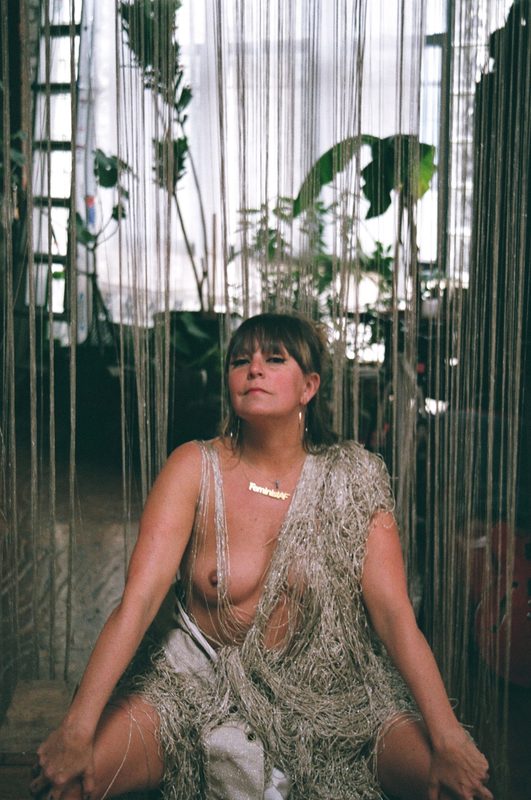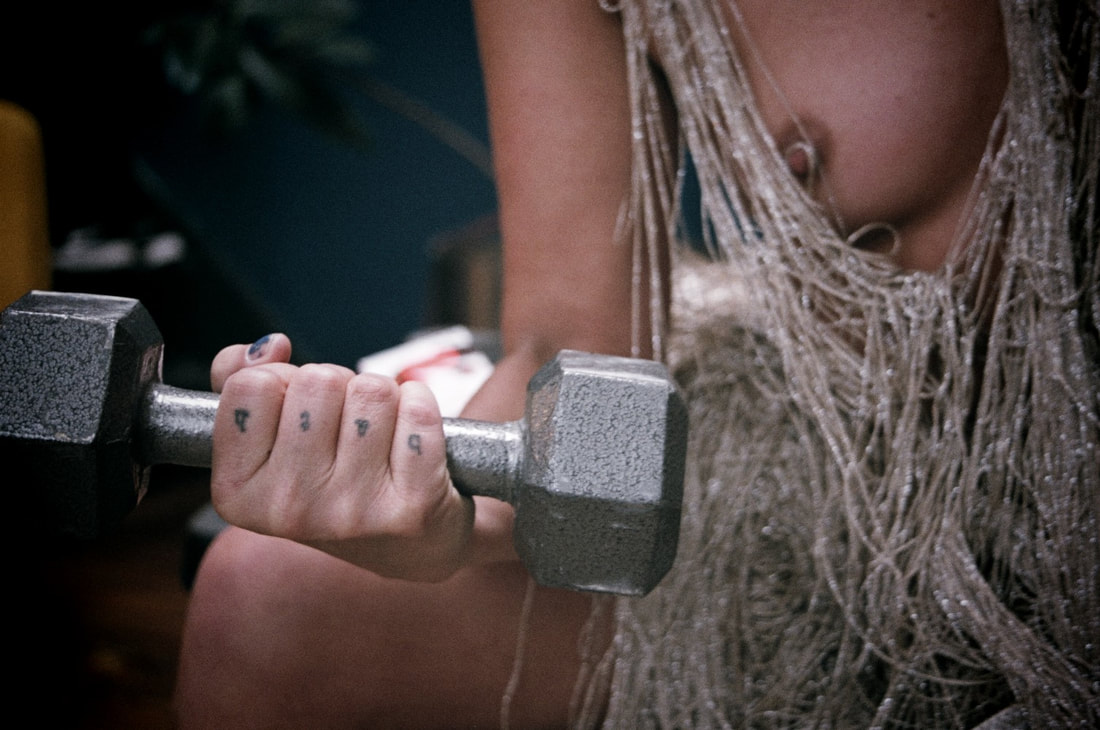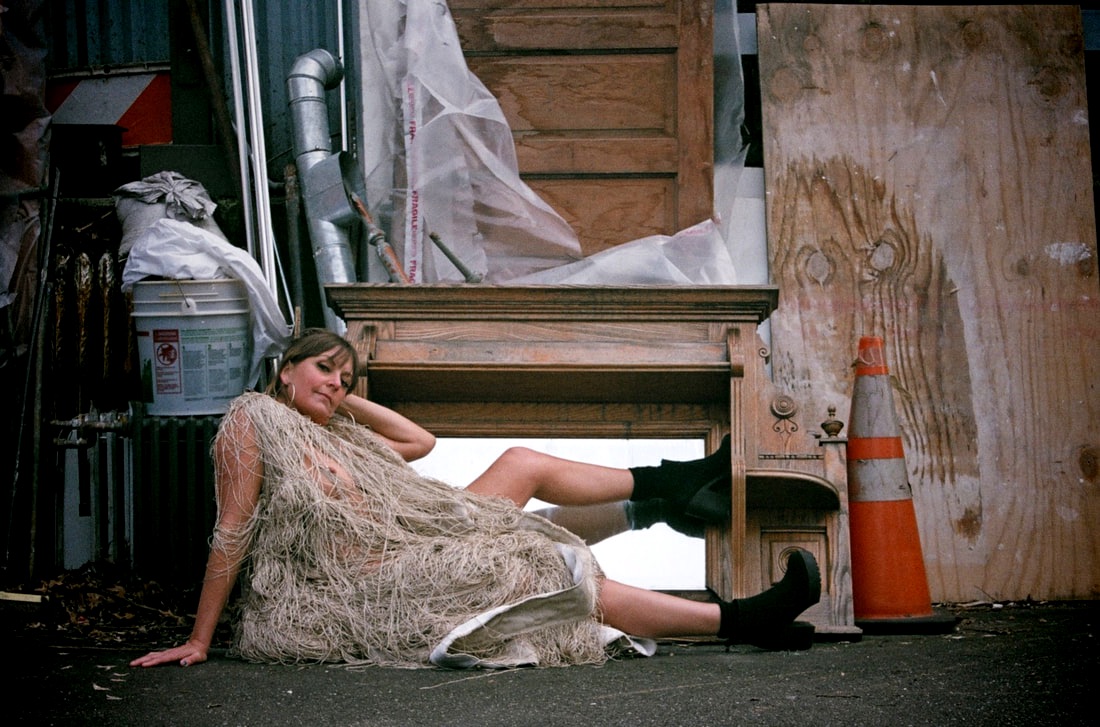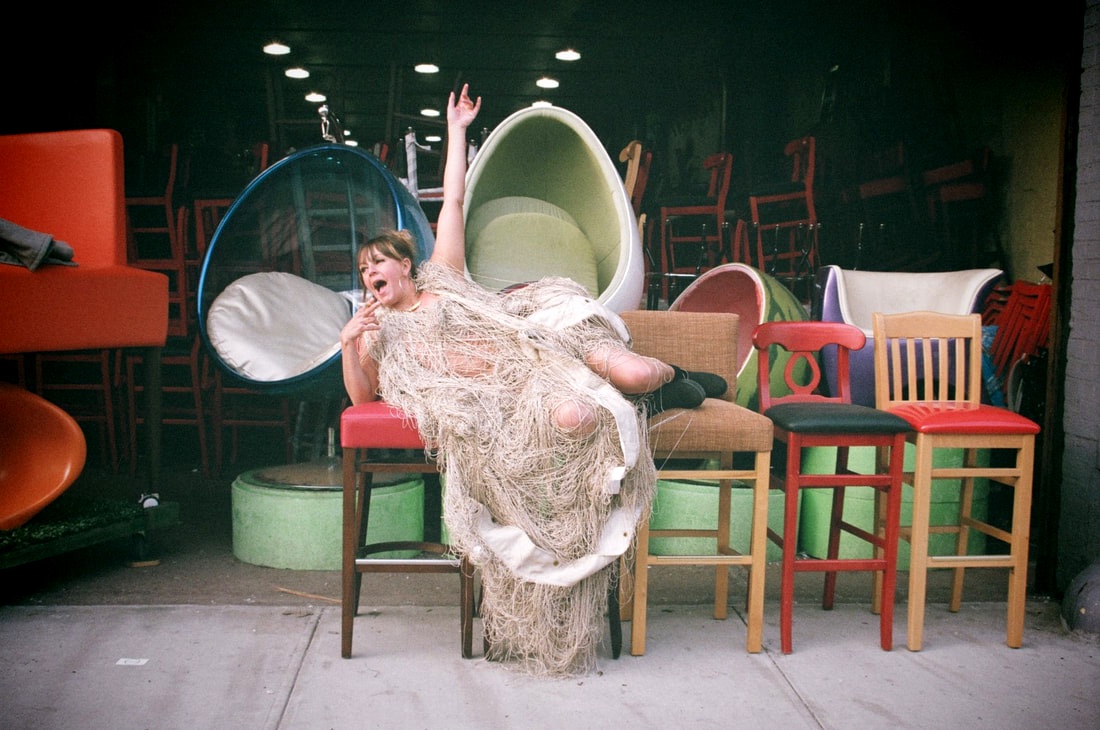DICK MEETS...
ADRIENNE TRUSCOTT
IMAGES: ELSA BRIGHTLING
|
ADRIENNE TRUSCOTT IS AN AWARD WINNING ARTIST WHOSE BODY OF WORK SPANS DANCE, THEATRE, CIRCUS, COMEDY AND WRITING. SHE IS FIERCELY COMMITTED TO LIVE PERFORMANCE AS A RADICAL TOOL FOR TRANSFORMATION, BOTH ON A SOCIETAL AND PERSONAL LEVEL. SHE IS PERHAPS MOST KNOWN FOR HER FORM-PUSHING SHOW ADRIENNE TRUSCOTT'S ASKING FOR IT: A ONE-LADY RAPE ABOUT COMEDY STARRING HER PUSSY AND LITTLE ELSE!, WHICH WON MULTIPLE AWARDS AND CONTINUES TO TOUR AROUND THE WORLD.
AS PART OF THIS YEAR'S AMERICAN REALNESS FESTIVAL IN NEW YORK, ADRIENNE PERFORMED HER LATEST WORK THIS, A PIECE PARTLY CONCERNED WITH PERSONAL MEMOIR AND TRAUMA. OUR NEW YORK CORRESPONDENT, EXPERIMENTAL THEATRE MAKER DICK WALSH, SAT DOWN WITH ADRIENNE AND HER LONG-TIME COLLABORATOR CARMINE COVELLI IN A BUSY NEW YORK CAFE TO CHAT. THEY TALKED PARTLY ABOUT HER SHOW, BUT MAINLY ABOUT AMERICAN POLITICS AND THE IMPACT TRUMP'S ELECTION HAS HAD ON HER ATTITUDE TO MAKING WORK. <
|



